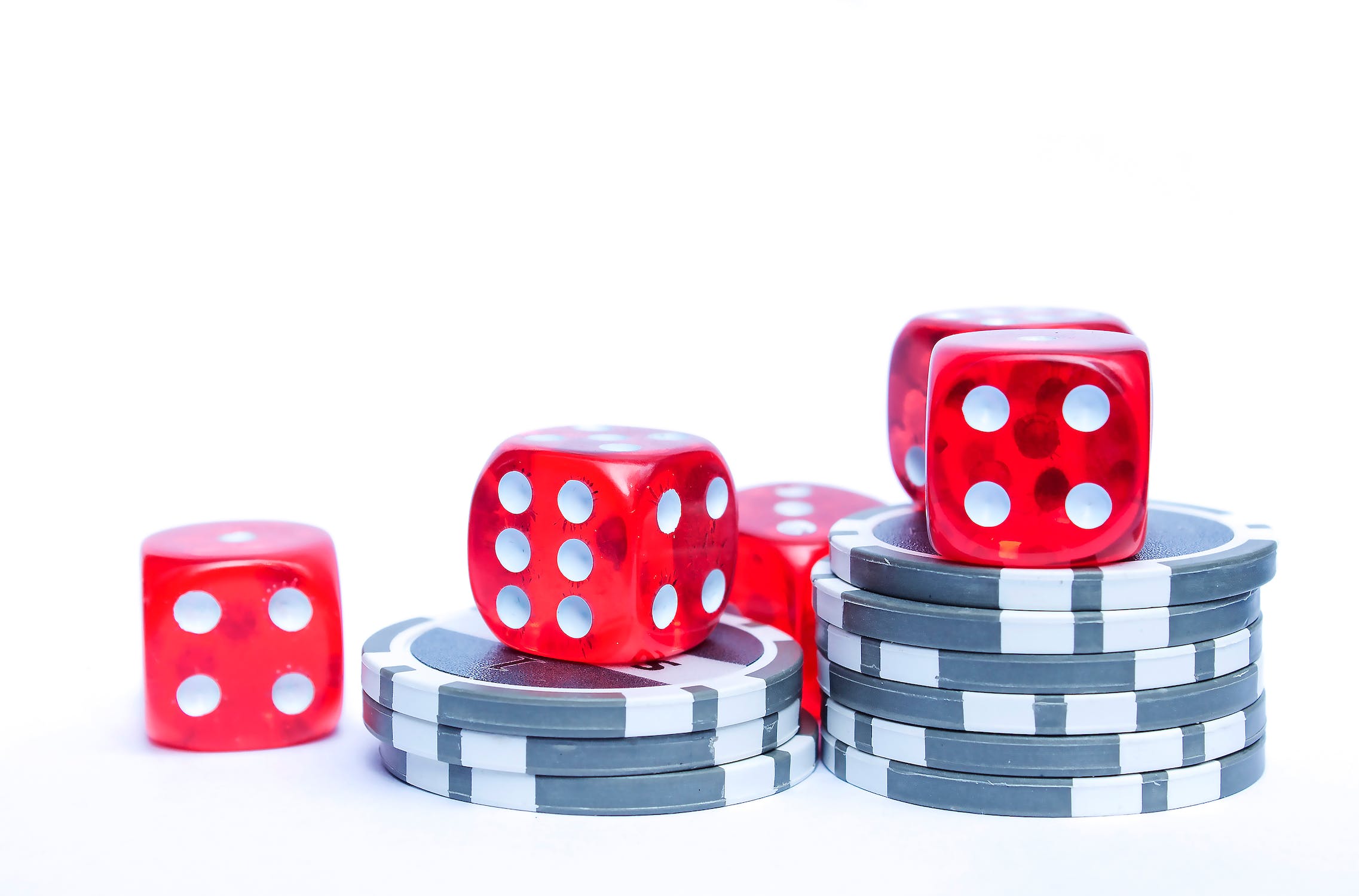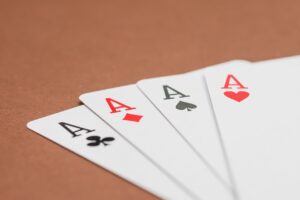Poker psychology is an essential aspect of the game that is often overlooked by many players. Mental endurance is a crucial component of poker psychology that can make or break a player’s success at the table. In this article, we will explore the importance of mental endurance in poker and how it can affect a player’s performance.
The Role of Mental Endurance in Poker: Why It Matters
Mental endurance is the ability to stay focused, motivated, and resilient in the face of challenges and setbacks. In poker, mental endurance is crucial because the game can be mentally exhausting. Players must maintain their concentration for hours on end, deal with bad beats and losing streaks, and resist the temptation to tilt or give up.
One of the biggest challenges in poker is dealing with variance. Variance refers to the natural fluctuations in luck that occur in the short term. Even the best players can experience losing streaks or bad beats that are beyond their control. These events can be frustrating and demoralizing, and they can cause players to lose their focus and confidence.
To overcome variance, players must have mental endurance. They must be able to stay focused on the long-term goal of making profitable decisions, even when they are experiencing short-term losses. They must be able to maintain their confidence in their abilities, even when they are facing tough opponents or unfavorable odds.
Another important aspect of mental endurance in poker is the ability to manage emotions. Emotions can be both a blessing and a curse in poker. On the one hand, they can help players make better decisions by providing valuable information about their opponents’ behavior and intentions. On the other hand, they can cloud judgment and lead to impulsive or irrational decisions.
To manage emotions effectively, players must have mental endurance. They must be able to recognize when their emotions are influencing their decisions and take steps to regain their objectivity. They must be able to stay calm and composed, even when they are experiencing intense emotions like anger, frustration, or fear.
One way to improve mental endurance in poker is to develop a strong mindset. A strong mindset is characterized by a positive attitude, a growth mindset, and a willingness to learn from mistakes. Players with a strong mindset are more resilient in the face of challenges and setbacks, and they are more likely to bounce back from losses and continue to improve their skills.
Another way to improve mental endurance in poker is to practice mindfulness. Mindfulness is the practice of being present and aware of one’s thoughts, feelings, and surroundings. It can help players stay focused, calm, and centered, even in the midst of distractions or stress. Mindfulness can also help players develop a deeper understanding of their own emotions and thought processes, which can lead to more effective decision-making.
In conclusion, mental endurance is a critical component of success in poker. Players who develop strong mental endurance are better equipped to deal with the challenges and setbacks that are inherent in the game. They are more likely to maintain their focus, confidence, and objectivity, even in the face of adversity. By improving their mental endurance, players can take their game to the next level and achieve greater success on and off the felt.
How to Build Mental Endurance for Long Poker Sessions
Poker is a game of ups and downs. Players can experience long periods of winning or losing, and it is important to maintain emotional control throughout. Mental endurance allows players to stay focused and make rational decisions, even when faced with adversity. It also helps players avoid tilt, which is a state of emotional frustration that can lead to poor decision-making and ultimately, losses.
In addition to emotional control, mental endurance is also important for maintaining focus and concentration. Poker requires players to analyze information, make decisions, and adjust their strategies based on their opponents’ actions. This requires a high level of mental acuity, which can be difficult to maintain over long periods of time. Mental endurance allows players to stay sharp and make the best decisions possible, even after hours of play.
Tips for Building Mental Endurance
Building mental endurance is not easy, but it is essential for success in poker. Here are some tips for improving your mental endurance:
1. Practice Meditation: Meditation is a great way to improve focus and concentration. It can also help reduce stress and anxiety, which can be detrimental to mental endurance. Try meditating for 10-15 minutes each day to improve your mental clarity and focus.
2. Exercise Regularly: Exercise is not only good for your physical health but also your mental health. Regular exercise can help reduce stress and improve cognitive function, both of which are important for mental endurance. Try to incorporate at least 30 minutes of exercise into your daily routine.
3. Take Breaks: It is important to take breaks during long poker sessions. This allows you to recharge and refocus, which can improve your mental endurance. Try taking a 10-15 minute break every hour or so to stretch, hydrate, and clear your mind.
4. Stay Hydrated: Dehydration can lead to fatigue and mental fog, both of which can be detrimental to mental endurance. Make sure to drink plenty of water throughout the day to stay hydrated and alert.
5. Get Enough Sleep: Sleep is essential for mental endurance. Lack of sleep can lead to fatigue, irritability, and poor decision-making. Aim for 7-8 hours of sleep each night to ensure that you are well-rested and mentally sharp.
Conclusion
In conclusion, mental endurance is a crucial component of success in poker. It allows players to maintain emotional control, focus, and concentration over long periods of time. Building mental endurance takes practice and dedication, but it is well worth the effort. By incorporating meditation, exercise, breaks, hydration, and sleep into your routine, you can improve your mental endurance and become a more successful poker player.
The Connection Between Mental Endurance and Bankroll Management in Poker
Mental endurance refers to a player’s ability to maintain focus, concentration, and emotional control over an extended period. In poker, this means being able to make rational decisions, even when faced with adversity or bad luck. Mental endurance is essential because poker is a game of variance, meaning that even the best players will experience losing streaks and bad beats. Without mental endurance, players are more likely to tilt, make poor decisions, and ultimately lose money.
One of the most significant connections between mental endurance and poker is bankroll management. Bankroll management refers to the practice of managing one’s poker funds to ensure long-term success. This involves setting aside a specific amount of money for poker, only playing at stakes that are appropriate for one’s bankroll, and avoiding tilt-induced decisions that could lead to significant losses.
Mental endurance is critical for bankroll management because it allows players to make rational decisions about their poker funds. For example, a mentally strong player will be able to resist the temptation to play at higher stakes than their bankroll allows, even if they are on a winning streak. They will also be able to avoid chasing losses or making impulsive decisions that could lead to significant losses.
In contrast, a player with poor mental endurance may be more likely to make poor bankroll management decisions. They may play at stakes that are too high for their bankroll, chase losses, or make impulsive decisions that lead to significant losses. This can quickly lead to a downward spiral, where the player’s bankroll is depleted, and they are forced to either quit playing or deposit more money.
To improve mental endurance in poker, players must focus on several key areas. First, they must develop a strong mindset that allows them to stay focused and motivated, even when faced with adversity. This involves setting clear goals, developing a positive attitude, and learning to manage emotions effectively.
Second, players must learn to manage their time effectively. This means setting aside dedicated time for poker, avoiding distractions, and taking regular breaks to recharge. By managing their time effectively, players can avoid burnout and maintain their mental endurance over the long term.
Finally, players must develop a strong support network. This includes friends, family, and fellow poker players who can provide encouragement, advice, and support when needed. By surrounding themselves with positive influences, players can stay motivated and maintain their mental endurance even during difficult times.
In conclusion, mental endurance is a critical factor in determining a player’s success in poker. It is closely linked to bankroll management, as players with strong mental endurance are more likely to make rational decisions about their poker funds. To improve mental endurance, players must focus on developing a strong mindset, managing their time effectively, and building a strong support network. By doing so, they can improve their chances of long-term success in poker and avoid the pitfalls of poor mental endurance.
Overcoming Tilt: Strategies for Maintaining Mental Endurance in Poker
Tilt is a term used to describe a player’s emotional state when they become frustrated, angry, or upset during a game. Tilt can be caused by a variety of factors, including bad beats, losing streaks, or even personal issues outside of the game. When a player is on tilt, they are more likely to make poor decisions, play recklessly, and lose money.
To overcome tilt and maintain mental endurance, players must develop strategies to manage their emotions and stay focused on the game. One effective technique is to take breaks when feeling overwhelmed or frustrated. Stepping away from the table for a few minutes can help players clear their minds and regain their composure.
Another strategy is to practice mindfulness and meditation. By focusing on the present moment and letting go of negative thoughts and emotions, players can reduce stress and improve their mental clarity. This can lead to better decision-making and more successful outcomes in the game.
It’s also important for players to develop a strong support system. Surrounding oneself with positive, supportive people can help players stay motivated and focused on their goals. This can include friends, family, or even a poker coach or mentor.
In addition to these strategies, players can also benefit from developing a growth mindset. This means viewing losses and setbacks as opportunities for learning and growth, rather than as failures. By embracing a growth mindset, players can stay motivated and focused on improving their skills, even in the face of adversity.
Ultimately, the key to maintaining mental endurance in poker is to stay focused on the game and avoid getting caught up in emotions or distractions. By developing effective strategies for managing tilt and staying focused, players can improve their overall performance and achieve greater success in the game.
In conclusion, poker psychology is a critical aspect of the game, and mental endurance is essential for success. By developing effective strategies for managing tilt, staying focused, and maintaining a growth mindset, players can improve their overall performance and achieve greater success in the game. Whether you’re a beginner or an experienced player, investing in your psychological skills can pay off in the long run.
The Benefits of Mindfulness and Meditation for Poker Players’ Mental Endurance
Mindfulness is the practice of being present and fully engaged in the current moment. It involves paying attention to one’s thoughts, feelings, and surroundings without judgment. Meditation is a technique used to achieve a state of calm and relaxation. It involves focusing on one’s breath or a specific object to quiet the mind and reduce stress.
For poker players, mindfulness and meditation can help improve mental endurance, reduce stress and anxiety, and enhance focus and concentration. By practicing mindfulness and meditation, players can learn to stay present and focused during long sessions, make better decisions, and avoid tilt.
Tilt is a term used in poker to describe a player’s emotional state when they become frustrated, angry, or upset. Tilt can lead to poor decision-making, impulsive actions, and ultimately, losses. Mindfulness and meditation can help players recognize when they are experiencing tilt and learn to manage their emotions more effectively.
Research has shown that mindfulness and meditation can also improve cognitive function, memory, and creativity. These benefits can translate into better decision-making and more successful outcomes in poker.
To incorporate mindfulness and meditation into their poker practice, players can start by setting aside a few minutes each day to meditate or practice mindfulness. They can also use mindfulness techniques during play, such as taking deep breaths, focusing on their surroundings, and staying present in the moment.
In addition to mindfulness and meditation, there are other strategies players can use to improve their mental endurance in poker. These include getting enough sleep, eating a healthy diet, and staying hydrated. Exercise and physical activity can also help reduce stress and improve mental clarity.
Another important aspect of mental endurance in poker is the ability to manage bankroll and handle losses. Players who are mentally strong and resilient are better equipped to handle the ups and downs of the game and avoid going on tilt.
In conclusion, mental endurance is a crucial component of success in poker. Mindfulness and meditation can help players improve their focus, reduce stress and anxiety, and manage their emotions more effectively. By incorporating these practices into their poker routine, players can enhance their mental endurance and increase their chances of success at the table. Mental endurance is a crucial aspect of poker psychology. It allows players to stay focused, make rational decisions, and avoid tilt. Developing mental endurance requires practice, discipline, and a willingness to learn from mistakes. By improving their mental game, players can increase their chances of success at the poker table.




